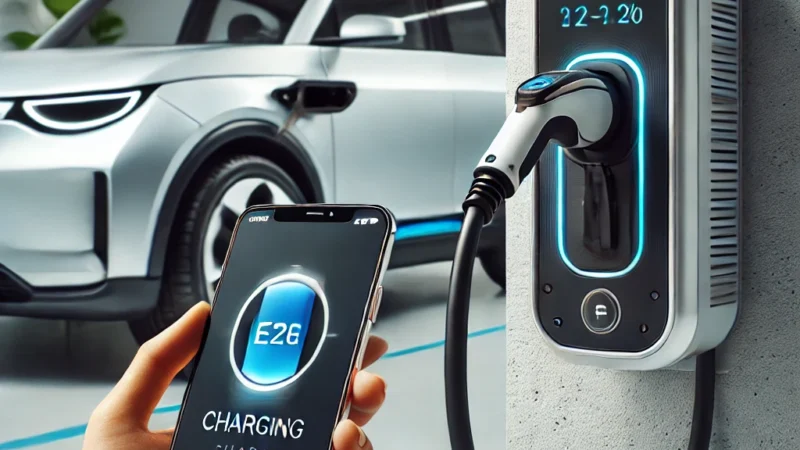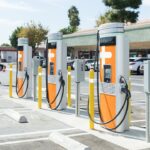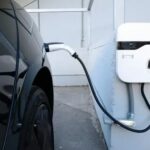As electric vehicles (EVs) continue to grow in popularity, so does the demand for efficient and reliable home charging solutions. While public charging stations are becoming more accessible, there’s no better convenience than having an electric vehicle charger right in the comfort of your own home. This is where tailored home chargers come into play, providing homeowners with factory-produced electric vehicle solutions that cater specifically to their needs.
Factory-produced chargers offer the perfect balance of speed, efficiency, and customization. These chargers are designed with the unique needs of homeowners in mind, ensuring they can efficiently power up their electric vehicles while saving on energy costs and enhancing the overall charging experience. In this article, we will dive into the advantages of tailored home chargers, how factory-produced solutions stand out from standard models, and why they’re a smart choice for EV owners. Additionally, we will explore the installation process, key features, and how factory-produced solutions can contribute to a more sustainable future.
The Rising Popularity of Electric Vehicles
The Shift Toward Electric Vehicles
The automotive industry is undergoing a significant transformation, with electric vehicles (EVs) leading the way. As concerns over climate change grow, governments worldwide have introduced regulations and incentives to encourage the adoption of electric vehicles. In fact, according to the International Energy Agency (IEA), the number of electric cars on the road reached 10 million globally in 2020, and this number is expected to rise exponentially in the coming years.
Consumers are increasingly aware of the environmental impact of their transportation choices and are opting for EVs as a cleaner, more sustainable alternative to traditional gasoline-powered cars. Battery technology has improved, making EVs more affordable and capable of longer ranges, which has further boosted their popularity.
The Need for Home Charging Solutions
While the rise of electric vehicles is an exciting development for the automotive industry, it has also highlighted the growing need for robust charging infrastructure. Public charging stations are becoming more widespread, but they still cannot match the convenience of home charging. Home charging allows EV owners to plug in their vehicle at night and wake up to a fully charged car each morning.
Home-based charging is not only more convenient but also more cost-effective. By using electricity from the home’s existing power supply, homeowners can avoid the often higher rates charged at public charging stations. In fact, charging at home during off-peak hours can help homeowners save money by taking advantage of lower electricity rates.
Factory-Produced Electric Vehicle Chargers
The Benefits of Tailored Home Chargers
Factory-produced home chargers are designed to provide a personalized solution for EV owners. These chargers are not one-size-fits-all, as they are built to meet the specific needs of a home and the vehicle being charged. Below are some of the key benefits of tailored home chargers:
1. Customization for Individual Needs
Factory-produced chargers offer a level of customization that standard chargers simply cannot match. From adjusting the power output to designing a charger that complements the home’s aesthetic, these chargers can be tailored to meet specific requirements. Customizable features include:
- Power Output: Tailored home chargers can be designed to provide different levels of power, ranging from 6.6 kW to 9.6 kW or more. This flexibility allows homeowners to choose the optimal charging speed based on their vehicle’s battery size and charging preferences.
- Smart Features: Many factory-produced chargers come with integrated smart technology. Features such as remote monitoring, charging scheduling, and real-time energy consumption tracking can be added, allowing homeowners to optimize their charging process and save on electricity costs.
- Aesthetic Design: For those who want their charger to blend seamlessly with the design of their home, factory-produced chargers offer aesthetic customization. Homeowners can choose the color, finish, and even the size of the charger to match their personal style and the surrounding environment.
2. Higher Performance and Reliability
Factory-produced chargers are designed with the latest technology to ensure high performance and reliability. These chargers undergo rigorous quality control processes during manufacturing, ensuring they provide a consistent and efficient power supply. Unlike off-the-shelf chargers, factory-produced models are built to last longer and deliver superior performance.
Factory-produced chargers are also more reliable than standard models because they are designed specifically for home use. With customizable power outputs and built-in safety features, these chargers provide consistent, safe, and efficient charging for electric vehicles.
3. Integration with Renewable Energy
As homeowners become more environmentally conscious, many are looking to integrate their electric vehicle chargers with renewable energy sources, such as solar panels. Factory-produced chargers can be designed to work with solar systems, ensuring that electric vehicles are powered by clean, renewable energy.
By using solar power to charge EVs, homeowners can reduce their carbon footprint and lower their energy costs. This integration not only contributes to a more sustainable energy ecosystem but also provides a cost-effective solution for powering electric vehicles.
Key Features of Factory-Produced Home EV Chargers
Power Output and Charging Speed
One of the most critical aspects of choosing a home EV charger is determining the charging speed and power output. The faster the charger, the less time it will take to charge an electric vehicle. Here are the three main types of chargers that homeowners typically use:
- Level 1 Chargers (120V): These chargers use a standard household outlet and are the slowest charging option. They typically provide 2-5 miles of range per hour of charging. While they are inexpensive, Level 1 chargers are generally not ideal for home use unless the owner drives very little.
- Level 2 Chargers (240V): Level 2 chargers are the most common option for home use, as they provide faster charging times. Depending on the vehicle’s battery size, these chargers can fully charge most electric vehicles in 4-8 hours. Factory-produced chargers typically fall into this category, offering power outputs ranging from 6.6 kW to 9.6 kW, with customization options for faster charging.
- DC Fast Chargers: These chargers deliver rapid charging, typically found in commercial or public charging stations. However, some high-end home chargers can be designed to provide DC fast charging, reducing charging times to under an hour. While these chargers are not typically used in residential settings due to their high cost and specialized electrical requirements, they are an option for those who require ultra-fast charging speeds.
Factory-produced chargers offer the flexibility of adjustable power output, allowing homeowners to choose the level of power needed for their specific vehicle and charging preferences.
Smart Features for Efficient Charging
Modern home EV chargers are equipped with smart features that help optimize energy usage and improve the overall charging experience. Some of the most common smart features include:
- Remote Monitoring: Many factory-produced chargers come with mobile app integration, allowing homeowners to monitor charging status and energy consumption in real-time. This feature also lets homeowners start or stop charging sessions remotely, providing greater control over the charging process.
- Scheduling: Smart chargers allow homeowners to schedule charging during off-peak hours when electricity rates are lower, helping them save on energy costs. This feature is particularly useful for homeowners who want to charge their vehicles at night or when the grid demand is low.
- Energy Tracking: Smart chargers provide real-time data on energy consumption, allowing homeowners to track how much energy is being used during each charging session. This data helps users optimize their charging schedule and make informed decisions on how to reduce energy consumption.
Safety Features and Durability
Factory-produced chargers come with built-in safety features designed to protect both the vehicle and the homeowner. Some of these features include:
- Overcurrent Protection: Factory-produced chargers are equipped with safety mechanisms that prevent excessive current from damaging the vehicle’s battery or the home’s electrical system.
- Thermal Management: These chargers are designed to keep the unit cool during operation, preventing overheating and reducing the risk of fire hazards.
- Ground Fault Circuit Interrupter (GFCI): GFCI protection ensures that the charger automatically shuts off if it detects a ground fault, preventing electrical shock.
- Water and Weather Resistance: For outdoor installations, factory-produced chargers are often weatherproof, designed to withstand rain, snow, and extreme temperatures.
These safety features ensure that homeowners can charge their electric vehicles with peace of mind, knowing that their home, car, and family are protected.
Installation and Maintenance of Factory-Produced EV Chargers
Professional Installation
While many factory-produced chargers are designed to be user-friendly, professional installation is highly recommended for optimal performance and safety. A licensed electrician will evaluate the home’s electrical system and ensure that it can support the power requirements of the charger.
The installation process typically includes the following steps:
- Site Evaluation: The electrician will assess the installation location to determine the best spot for the charger, considering factors such as accessibility, space, and proximity to the electrical panel.
- Electrical Work: The electrician may need to upgrade the home’s electrical panel or add a dedicated circuit to accommodate the additional load of the EV charger.
- Mounting the Charger: The charger will be securely mounted on a wall or pedestal, and the electrical connections will be made to the home’s power supply.
- Testing and Inspection: After installation, the electrician will test the charger to ensure it is functioning correctly and safely.
Ongoing Maintenance and Support
Factory-produced chargers typically come with warranties and customer support services to ensure long-term reliability. Many manufacturers offer maintenance packages that include regular inspections, software updates, and troubleshooting services.
Homeowners should periodically check their charger for signs of wear and tear or any issues that could impact performance. Regular maintenance helps ensure that the charger continues to function efficiently and safely.
Comparison: Factory-Produced EV Chargers vs. Standard Chargers
| Feature | Factory-Produced EV Charger | Standard EV Charger |
|---|---|---|
| Customization | Customizable power output, smart features, design options | Fixed power output, limited features |
| Charging Speed | Adjustable power output (6.6 kW to 9.6 kW) | Fixed power output (typically 6.6 kW) |
| Smart Features | Remote monitoring, scheduling, energy tracking | Basic mobile app control |
| Energy Integration | Solar energy integration | No integration |
| Safety Features | Overcurrent protection, GFCI, thermal management | Basic safety features |
| Warranty | Extended (up to 5 years) | Standard (usually 3 years) |
Table 1: Comparison of Factory-Produced vs. Standard EV Chargers
As shown in the table, factory-produced chargers offer greater customization, more advanced smart features, and better integration with renewable energy sources, making them the ideal choice for homeowners seeking a personalized and efficient home charging solution.
Conclusion
Factory-produced electric vehicle chargers for custom home needs offer homeowners a high-performance, reliable, and tailored solution for charging their electric vehicles. These chargers are designed with the latest technology to ensure fast charging speeds, optimal energy usage, and long-term durability. Customization options, including adjustable power outputs, smart features, and aesthetic designs, ensure that homeowners can select a charging solution that fits their specific needs.
Whether it’s for faster charging, smart energy management, or the integration of renewable energy, factory-produced chargers provide the flexibility, efficiency, and convenience that homeowners seek. By opting for a factory-produced charger, homeowners are making a smart investment in their EV charging infrastructure, ensuring that their system is future-proof and capable of meeting their needs for years to come.




